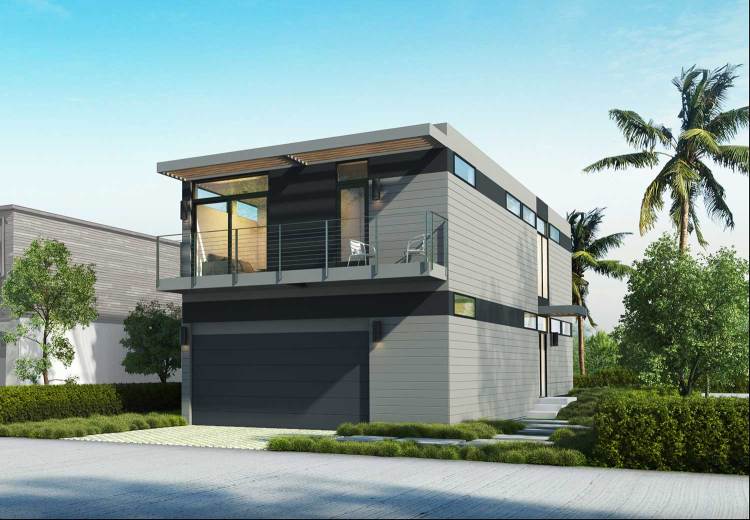Plant Prefab wants to make it easier for people to build homes within urban neighborhoods and cities, and it has raised $3 million to do just that. The investment, led by Obvious Ventures, will go some way toward helping the company scale, bring on more talent, and improve existing systems.
A spin-off of LivingHomes, Plant Prefab is a design and development company that builds sustainable and prefabricated homes. It was founded by Steve Glenn and aims to deliver low-cost homes in half the time and with less waste than you’d get using a traditional general contractor who was based on-site. The company produces single or multi-family homes that are high-quality, customized, durable, sustainable, and healthy.
The vision is to target those in more urbanized areas and give developers better tools when dealing with “mom and pop” general contractors. Plant Prefab is going after the urban infill market, which deals with developments sitting on vacant or underdeveloped land within an existing community. These could be constrained areas within cities like San Francisco, New York, Boston, and elsewhere.
“The market is growing rapidly because the world is becoming more urbanized,” Glenn told VentureBeat. “We need responsible ways to deal with the fact that more people are being born. Where are you going to be housed?” He said smart urban planners are thinking about ways to make cities more responsible, including putting people near jobs and commerce. Plant Prefab builds homes that can easily be inserted into urban infill areas.
Plant Prefab currently builds homes out of its 61,000-square-foot factory in Rialto, Calif. and is working on other development projects, as well. Glenn said that his company has a “pretty sizable book of business” — north of $12 million — and has done work in cities such as Los Angeles. The latest round of investment will come in particularly handy at the factory, as it will pay for the human element — those who do the construction in the factory as they would out on the site.
When you purchase a home from Plant Prefab, the modules are built in an assembly line just like the one you’d see in an ship or plane building factory, which Glenn said reduces backlog. While he said the company doesn’t need the funds, they will be beneficial in the long-term, as they will allow Plant Prefab to make its proprietary building system more efficient and less reliant on manual labor.
“Buildings and infrastructure are some of the most lasting components of our environment, so ensuring they are sustainable is an extraordinary world positive opportunity,” said Andrew Beebe, managing director at Obvious Ventures. “Plant Prefab has a pedigree of innovation in environmentally responsible building and our investment in the company makes sustainable homes accessible economically and, more importantly, in a way that can scale to meet growing housing market opportunities.”
Updated as of 2:50 p.m. on Monday: This post incorrectly stated that Plant Prefab has done work in Boston and New York — the company has only build homes in California.


